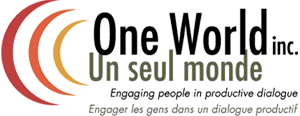Pioneering New Approaches To Address Youth Homelessness
 How can developmental evaluation help communities take action to address a complex problem such as youth homelessness?
How can developmental evaluation help communities take action to address a complex problem such as youth homelessness?
The Problem: Youth Homelessness
Youth homelessness is a significant national problem in Canada. Approximately 235,000 individuals, youth and families experience homelessness per year. Of these, approximately 20% are youth aged 16-24.[1]
Youth homelessness is a largely hidden problem in most communities. Most youth experiencing homelessness do not wind up “sleeping rough” on the street, but spend nights “couch surfing” wherever they can.
And youth homelessness has an enormous social cost. A high proportion of homeless youth report having experienced physical or sexual abuse. Many homeless youth experience addictions to drugs and alcohol. And mental health issues are also common; homeless youth are over 10 times more likely to commit suicide than other youth.[2]
Despite these shocking statistics, very few Canadian communities have strategies to address the situation of homeless youth.
The Solution: Mobilizing Local Capacity
Eva’s Initiatives, an innovative Toronto social agency, working together with other national partners, wanted to stimulate action in Canadian communities to address the youth homelessness issue. They secured funding from the Catherine Donnelly Foundation to implement a creative initiative called Mobilizing Local Capacity to Address Youth Homelessness (MLC).
The goal was to help Canadian communities to develop comprehensive strategies to address the issue. Rather than following a “formula-based” approach to developing their strategies, each community was to develop its own “home-grown” model. The approach to working with communities was an innovative one – communities were assisted with coaching, and connecting them with expertise as they worked through the process of developing their strategies. They also received some limited seed money to help them with their process.
The idea was to work with small groups of communities – two at a time – and to support each community for a year or more. New communities would be introduced every six months, and over time a whole group of communities would emerge through this process. Communities could also learn from each other, with the more experienced communities serving as mentors to the newer ones.
The Role of Developmental Evaluation
Early in the process, Eva’s Initiatives indicated an interest in using a Developmental Evaluation (DE) approach to assist them in developing this initiative. DE was seen as a useful tool because the initiative was a complex one and this approach to supporting communities had never been tried before. Eva’s and the MLC Steering Committee wanted to be able to learn from the initiative in progress and to make adjustments to their model where necessary.
One World Inc. worked with Eva’s and the Steering Committee for the MLC to develop a Theory of Change for the initiative. This Theory of Change identified the long-term goal for the initiative (a measurable reduction in Youth Homelessness for the participating communities), and the main elements that had to be in place to enable that goal to be achieved:
- Communities having plans to prevent, reduce and end Youth Homelessness;
- Local Communities feeling well-supported (by the MLC);
- A system (in each community) committed to preventing, reducing and ultimately ending youth homelessness;
- Putting youth homelessness on the public agenda; and
- Putting youth homelessness on the agenda of decision makers.
These elements are described in greater detail in the Theory of Change diagram.
To date, a total of six communities are part of the MLC process.
Since the project began, almost two years ago, One World has interviewed the participating communities and the Project Coordinator every two months in a series of reflective calls to learn about progress and to assess learnings. The reflective calls, and the DE process in general have helped to promote a culture of learning throughout the MLC initiative.
[1] http://www.raisingtheroof.org/news-and-events/media-room/fast-facts.aspx
[2] Ibid.
